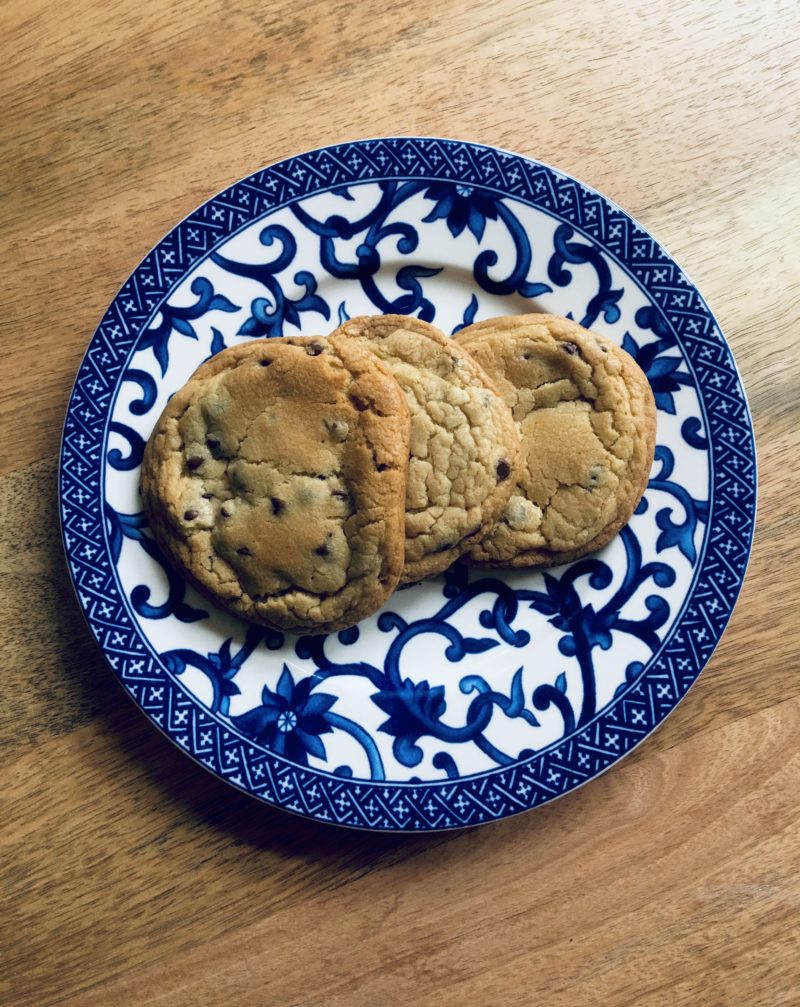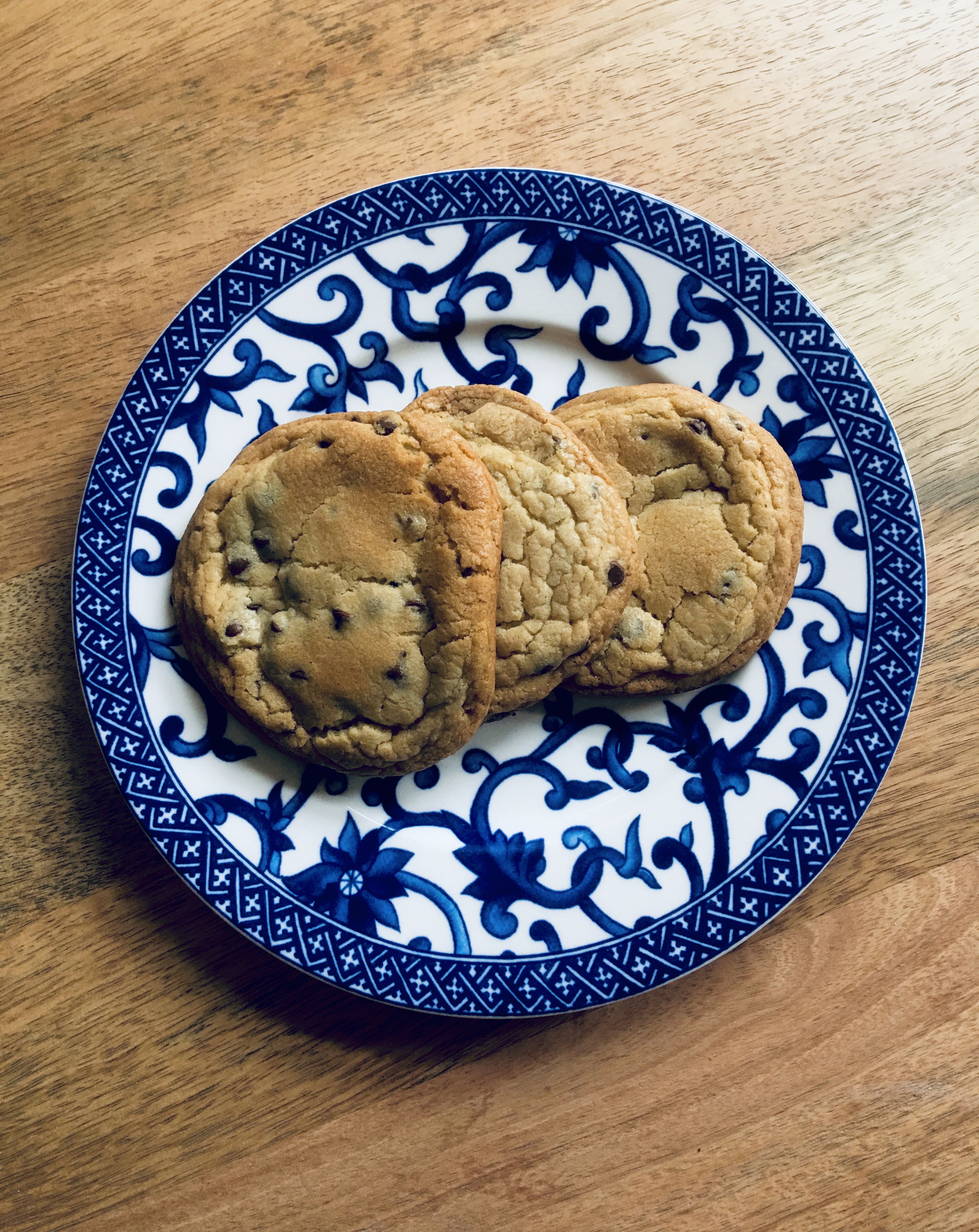Hobbies, Planning, & Mental Health
I wasn’t planning on providing COVID-19 content forever, but for everyone in this country, this is still our reality to some degree or another. So for now, this is what’s top of mind. I don’t know about you, but last week was a weird one for me. I fluctuated between wanting to fill my days with long checklists and wanting to commit myself to absolutely nothing, with neither option making me feel any more accomplished than the other. I guess that’s a pretty common assessment about how these past few months have been — there’s a fairly universal feeling of wanting to capitalize on this time and not let these days pass us by completely, while still recognizing that a lot of this isn’t fully in our control. Early on, maybe you (or someone you know) signed up for digital workout classes, or purchased new tools for your cooking arsenal, or took up a hobby you briefly mentioned in passing before this all started. I get it. I initially thought I would spend quarantine working on needlepoint projects, taking ballet classes online, and reclaiming my long-lost French language skills through an app. It was all part of finding activities to help “bring me back to center,” or creating a normal routine. Maintaining some sense of normalcy has helped people in tremendous ways, whether that means finding ways to keep physically active (like online classes or running apps), maintaining social relationships (i.e. Zoom parties and virtual game nights), brushing up on life skills (like baking and gardening), or leaning into hobbies* (there’s finally time to prioritize them).
*As much as I love that hobbies are finally being appreciated, I have to recognize that having the ability/time/finances/etc. to dedicate to these ventures is an element of privilege. I realize not everyone is able to focus on these things right now and don’t mean to make light of things.
But even so, all of these projects meant to give us the feeling of control of our time or some sense of accomplishment in our newly-freed schedules can become equally debilitating during days as uncertain as these. The time I thought I had to start needlepoint projects were replaced with the cooking times necessary to make multiple meals every day; the ballet classes were replaced with HIIT circuits I could incorporate into small bursts of “down time” I was willing to carve out during cleaning and organizing days. I did do the French lessons, but I started to become competitive with myself (as is my nature) and what was supposed to be a fun activity started to feel like a cumbersome chore. My point is, it’s great to try new things during this time (and I’ve definitely been doing that), but it’s equally important to take care of our mental health** and avoid activities that just add to the anxiousness many of us are feeling.
**May is Mental Health Awareness Month, and while mental health is definitely a nuanced spectrum that I don’t claim to be an expert on, finding ways to feel like our “normal” selves and wanting to take care of ourselves (as well as each other) is a universal feeling.
So last week, instead of focusing on the high-highs (relative to the circumstances) and the low-lows of COVID-19, I tried to create a new-normal-routine. Here’s what I found helpful:
THE NEW “NORMAL” ROUTINE
-
Write It Down on the Schedule
I’m a planner person by nature. If I don’t write down my to-do list, nothing gets done. Equally as important, though, is the structure my schedule gives my day. Looking at blank days in my planner subconsciously told me that I could “take the day off”–which is fine for a day or so, but not every day. So I write everything down—what time I woke up, what I made for dinner, who I talked to on FaceTime and Zoom; if I did it, I write it down. The difference is that I’m no longer scheduling things in (unless that still applies, like appointments or Zoom meetings). Instead, I’m keeping a record of my day as it goes by.
-
Prioritize the Beginning and End of Your Day
Similarly, I’ve found making smaller routines helpful in maintaining a sense of normal, but without too much pressure. I have a few tasks that I like to do each day and I break them up between my morning and evening. I’m less concerned with what time these routines start, but I make sure that each day follows the same way for the first and last hour. Starting my day the same way allows me to begin fresh, and ending the day the same way means that I can (figuratively) cross off that day for the week. You can fill these routines with whatever you want, but the point is that you repeat them consistently. I wouldn’t bombard them with too many tasks, though, because you want them to be quick and easy enough that you actually prioritize them.
-
Create Attainable Challenges
If you read my last post, you know we started receiving a CSA box from our local farmers. It’s been great, but one of the issues with ordering from the farms directly is that you’re limited to whatever produce and vegetables are currently growing, which means there is some repetition between the boxes. Early on, I could see that if I didn’t start thinking creatively, we would quickly tire of the same recipes. So I’ve started to challenge myself to create at least one new recipe each week. It means that I can rely on recipes in my repertoire when in a pinch, but I can also experiment with new ones, too. I love to cook, so this has been a creative outlet for me, but I mention this tip because it relates to all kinds of tasks during this time. It could be anything from challenging yourself to try something outside of your comfort zone, or pushing yourself to DIY something you would have previously outsourced. It even relates to how often you connect with friends or how many people you check in with that week. The key is to choose a singular challenge to focus on, though. If you start making everything a competition, you might end up like me and the French quizzes.

These are my go-to chocolate chip cookies, using the Jacques Torres recipe from the New York Times. They’re wow-worthy and friends always ask me about the recipe, but with all of the limited access to ingredients lately, I couldn’t get my hands on the chocolate I usually use. The end result wasn’t nearly as amazing as they normally are. Even so, I wasn’t going to re-make these just because they weren’t perfect, especially because they require an overnight chill in the refrigerator before baking. Now I know for next time! -
Find Balance in Your Hobbies
Lastly, find a way to balance your hobbies. These are weird times. I feel pretty confident that scrapping your schedule and staying home for a few months was never on your to-do list. But here we are, trying to make sense of it all. Hobbies give us outlets to try our hand at something new; they allow us to give ourselves grace during the chaos; and they give us something positive to focus on when we need to take a break from the real world. But some of us are digging ourselves so deeply into our hobbies that….well, all I’m saying is we should aim to find balance in all that we do–including hobbies. All of that Netflix binge-watching we were doing when this initially seemed like an extended weekend off? I think we can all agree there’s a limit to the number of episodes we watch before acknowledging there needs to be daily limits. Having said that, I’ve been watching Sweet Magnolias and The Big Flower Fight and recommend them both for a light-hearted escape.
I’ve mentioned that I find it calming to be in the kitchen, but even that should have its limits. I’ve been giving myself permission to go all out in the kitchen once a week. A pie, a loaf of zucchini bread, tartlets, quiche, a tiered-cake—wherever my mind takes me is absolutely fine–so long as I limit myself to once a week. That means that even when things don’t turn out perfectly, I’m going to call it a wash and move on—instead of re-making it until it’s perfect. I’m not saying you should limit yourself that much, but we need to not treat our hobbies as newfound jobs. I once read a tweet about this very topic and the gist was this: hobbies are what you do for fun, or to calm your mind, by yourself or with others. They are not meant to be new streams of income. You don’t need to be a professional to do them. That’s a job, and while jobs are important, so too is your mental health. And, ultimately, that’s what hobbies are for.
